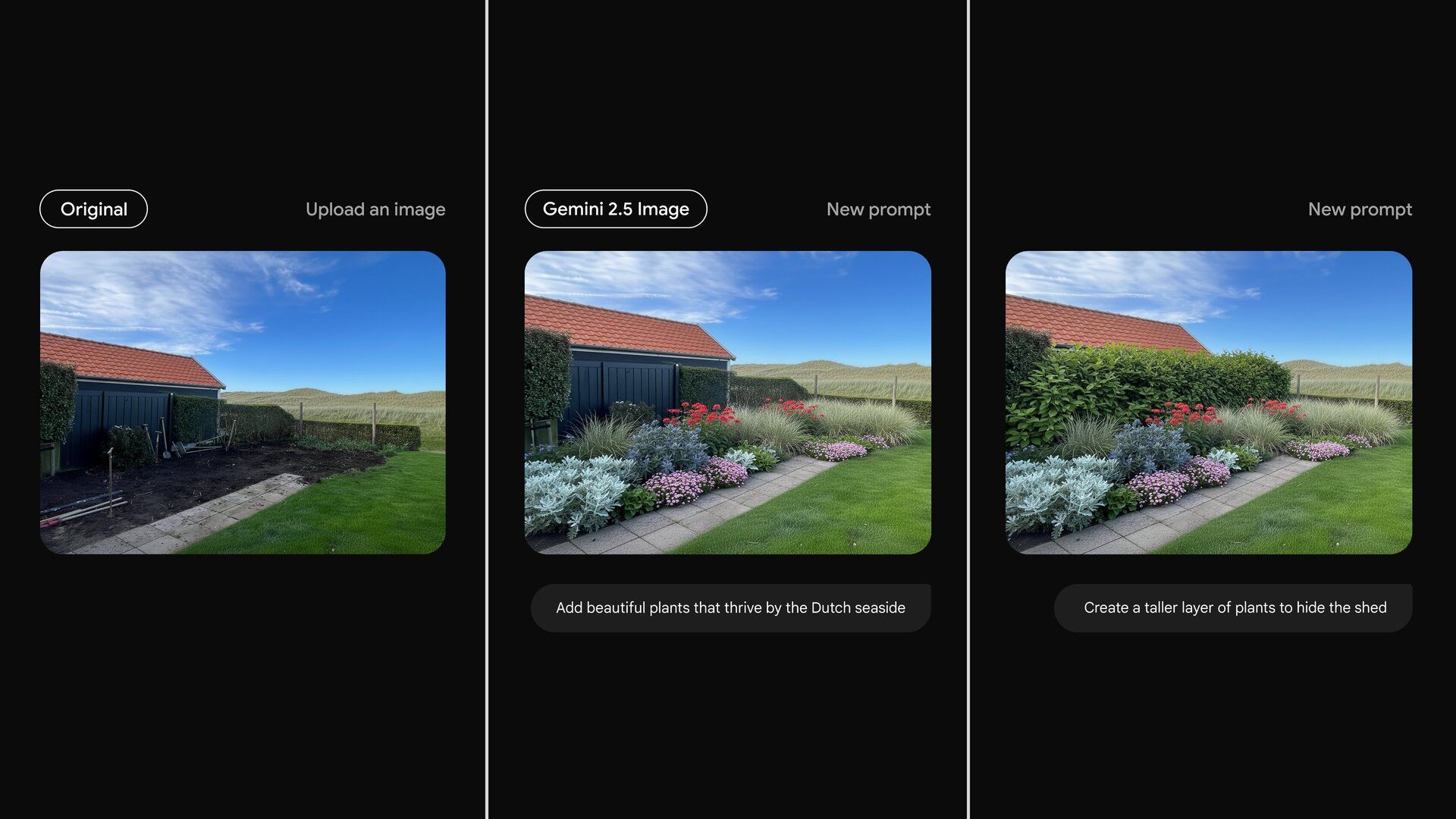Good morning. It’s Wednesday, August 27th.
On this day in tech history: In 2003, the world’s largest battery went online in Fairbanks, Alaska. A colossal 1,300-ton, 2,000 m² nickel-cadmium battery, capable of delivering 40 MW for up to 7 minutes, was installed to bridge outages in this "electrical island" city with no grid connection to the rest of the U.S. It serviced some 12,000 residents during diesel-generator startup.
In today’s email:
Gemini-Flash 2.5
Anthropic’s Claude for Chrome
OpenAI Sunsets “Assistants”
NVIDIA’s Earnings Could Make or Break ‘AI Bubble Fears’
5 New AI Tools
Latest AI Research Papers
You read. We listen. Let us know what you think by replying to this email.
Top Publishers Hand-Selecting Amazon Brands to Promote this Holiday Season
This holiday season, top publishers are actively sourcing brands to include in their gift guides, newsletters, listicles, reviews, and more to drive high-intent shoppers straight to Amazon storefronts.
Here’s why it matters:
Amazon brands are seeing a 5:1 conversion rate compared to their DTC site
Millions of shoppers discover products through trusted publishers
Levanta is working directly with these publishers to introduce them to a small number of 7–9 figure brands.
If you qualify, your products could be featured in high-traffic placements that deliver predictable CAC and directly measurable sales.

Today’s trending AI news stories
Gemini 2.5 Flash’s Goal is to make Photoshop obsolete
Google has released Gemini 2.5 Flash Image, its most capable AI image model to date, designed to fix two long-standing weaknesses in generative editing: prompt precision and subject fidelity. Previously known as nanobanana, the model is now live in Gemini, Vertex AI, AI Studio, and via API access. It can keep a subject’s identity intact across edits, whether shifting a pose, swapping a background, or changing lighting, an issue that still causes distortion in competitors like GPT-4o or Firefly.
The system handles multi-step instructions, blends up to three images, and supports localized edits or style transfers. Google claims benchmark wins on prompt accuracy, a long-standing pain point in image generation. It even shows basic early “real-world reasoning,” and every output ships with SynthID watermarks, a direct response to deepfake misuse and Google’s own past controversies over AI-generated inaccuracies. At roughly four cents per image ($30 per million tokens), Gemini 2.5 Flash is priced for scale.

Image: Google
That same push for practical AI shows up in Translate, now morphing into a Duolingo rival with AI. The new beta feature, powered by Gemini, builds personalized lessons that adapt to your skill level and purpose: brushing up for a trip, prepping for study abroad, or polishing business conversations.
On top of that, Google is rolling out live AI-powered translation for actual conversations. Available in the US, India, and Mexico, it supports over 70 languages, delivering real-time transcripts and audio translations back and forth. It doesn’t clone your voice yet, unlike Pixel’s on-device version, but Google says it’s experimenting. Read more.
Anthropic pilots Claude for Chrome, finds prompt-injection still a live threat
Anthropic is charting a cautious course in browser-controlling AI with its Claude for Chrome pilot, letting 1,000 premium users automate tasks like scheduling, inbox triage, and web navigation. Early tests exposed prompt-injection vulnerabilities, where hidden instructions tricked Claude into destructive actions with a 23.6% success rate. Safeguards such as site-level permissions, high-risk confirmations, and domain blocks cut that to 11.2%, but risk remains.
The company’s measured approach mirrors its legal strategy. Anthropic also reached a preliminary settlement in a high-stakes copyright lawsuit over pirated books used to train its models, sidestepping potential statutory damages that could have exceeded $1 trillion. Read more.
OpenAI to sunset Assistants API next year as Responses takes over
OpenAI is retiring its Assistants API, giving developers until August 26, 2026, to migrate to the newer Responses API. Assistants were the company’s early approach to building AI agents, but with Responses reaching feature parity, OpenAI has folded the best elements, including code interpreter and persistent conversations, into the new system.
Responses streamlines multi-step workflows across built-in tools like deep research, MCP, and computer use, while GPT-5 preserves reasoning tokens across turns. Usage already outpaces Chat Completions, and OpenAI recommends it as the primary integration path going forward. Developers can follow the migration guide here: [https://platform.openai.com/docs/assistants/migration.] Read more.
Nvidia will move the market tonight in a test of the alleged AI bubble
Nvidia is back in the spotlight as its Q2 earnings drop, and the market is watching like it’s a stress test for the entire AI boom. The $4 trillion chip giant drives the GPUs powering generative AI and cloud workloads. Analysts expect $46 billion in revenue, up 53% year-over-year, with data center sales near $40 billion and EPS hitting $1.01. Growth is heavily concentrated among a handful of cloud giants and deep-pocketed AI startups, and China remains a wildcard: limited export licenses with a 15% revenue-share deal reduce upside visibility. After a 35% stock surge since May, even a small miss could rattle the market, feeding fears of an AI bubble.
Parallel to its market influence, Nvidia is pushing AI off the cloud and into the physical world. Nvidia’s Jetson AGX Thor brings “physical AI” to the edge. Delivering 2,070 FP4 teraflops with 128GB memory at 130W, Thor runs LLMs, vision transformers, and Isaac GR00T in parallel. Robots, surgical machines, and industrial systems now perceive, reason, and act in real time without cloud latency.
Early adopters include Boston Dynamics, Amazon Robotics, Caterpillar, and Figure, with Meta, OpenAI, and Medtronic testing. Thor is essentially a supercomputer you can plug into a robot. Read more.


5 new AI-powered tools from around the web

arXiv is a free online library where researchers share pre-publication papers.
📄 Visual-CoG: Stage-Aware Reinforcement Learning with Chain of Guidance for Text-to-Image Generation


Thank you for reading today’s edition.

Your feedback is valuable. Respond to this email and tell us how you think we could add more value to this newsletter.
Interested in reaching smart readers like you? To become an AI Breakfast sponsor, reply to this email or DM us on 𝕏!








